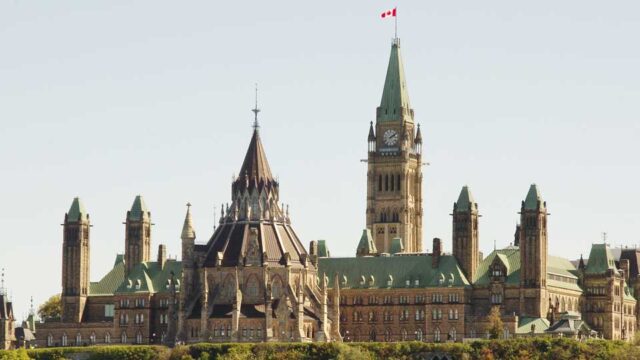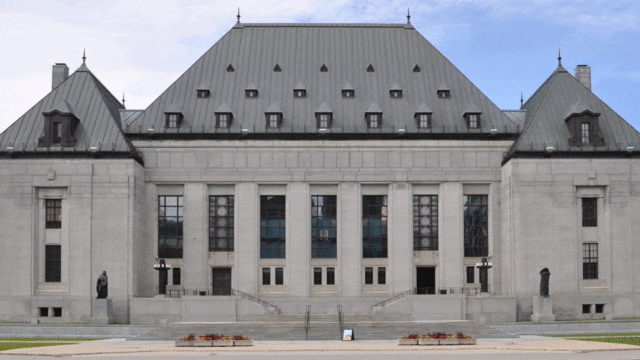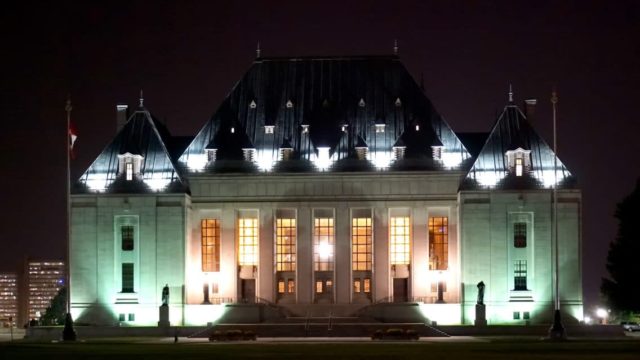This was originally published by the Ottawa Citizen.
In a striking 6-3 decision, the Supreme Court of Canada ruled last week that the Greenhouse Gas Pollution Pricing Act and minimum carbon pricing standards are constitutionally sound and essential in the fight against the climate emergency.
This historic decision is a major victory for the scores of people across Canada who have mobilized and demanded more ambitious climate action, only to see national progress stalled by staunch opposition in some provinces, notably Ontario, Alberta and Saskatchewan.
Says Canada’s highest court: “Climate change is real. It is caused by greenhouse gas emissions resulting from human activities, and it poses a grave threat to humanity’s future. The only way to address the threat of climate change is to reduce greenhouse gas emissions.”
The Court went as far as to call climate change a “threat of the highest order to the country, and indeed the world… The undisputed existence of a threat to the future of humanity cannot be ignored.”
In the face of this existential threat, the federal and provincial governments must work together to deliver solutions to reduce Canada’s carbon emissions — and quickly.
More specifically, it’s time for the provinces and their premiers to stop politicking about climate action, and get on onboard with national, coordinated efforts to reduce Canada’s emissions.
The Supreme Court’s ruling effectively shuts down the argument that the provinces should be allowed to opt-out of national minimum carbon pricing, and instead introduce their own less effective plans. In fact, the Court says leaving emissions controls to the provinces alone would cause “profound nationwide harm.”
The ruling confirms that the Greenhouse Gas Pricing Act simply imposes a narrow and specific backstop to address deficiencies in provincial regulation and to address extraprovincial and international harm. Any impact the Act might have on provinces is justified, the Court says, in order to protect the environment, human health and safety, and the Canadian economy. Failure to take coordinated national action could lead to irreversible harm, borne disproportionately by vulnerable communities and regions in Canada.
All told, yesterday’s judgement is a landmark legal precedent that makes Canada’s short and long-term climate and emissions-reductions ambitions viable.
As the Supreme Court said, pricing carbon is integral to emissions reduction. But it is not the end of the story. To achieve Canada’s climate goal of net-zero emissions by 2050, Canada also needs to set and meet enforceable emissions reduction targets, institutionalize accountability measures such as plans and reports, and work together with all orders of government to accelerate the just transition toward clean energy sources.
Achieving any of this in the context of Canadian federalism and our regional disparity in emissions will require an ongoing conversation about how to share the effort between federal, provincial, territorial and municipal governments, and respect Indigenous rights and authority. All have critical roles to play in fighting the climate emergency.
What we cannot afford are more years-long legal battles that ultimately slow the pace of meaningful climate action in Canada.
To date, Canada has missed every single emissions-target it has ever set. Meanwhile, the window to stave off the worst impacts of the climate crisis is rapidly closing. The broad scientific consensus is that we have less than a decade to turn the tide on climate change.
Canada is also warming faster than the rest of the world. We face a future with more frequent and extreme flooding, forest fires, and heatwaves. Loss of sea ice and permafrost threatens to submerge our coastal areas. We will also likely see greater spread of infectious diseases. If our political leaders have learned anything from the past year, it is that they must meet complex, multifaceted challenges with concerted, unified action.
Now that Canada’s highest court has decisively weighed in, it is up to Canada’s political leaders to cooperate and meet their legal obligations to secure a healthier, safer future for us all.
Joshua Ginsberg is the Director of the Ecojustice Environmental Law Clinic at the University of Ottawa. He represented the David Suzuki Foundation in the GGPPA constitutional references before the Courts of Appeal of Saskatchewan, Ontario and Alberta, and before the Supreme Court of Canada.






